Does DevOps Need Coding? Breaking Down the DevOps Role of Programming
Does DevOps Need Coding? Breaking Down the DevOps Role of Programming
Nov 25, 2024
Jithin
Nov 25, 2024


Jithin





Does DevOps Require Coding Skills? A Guide for Aspiring Professionals
DevOps has become the cornerstone of modern software development, promising faster delivery, greater collaboration, and more reliable software. But, despite its increasing popularity and in the ever-evolving world of tech, one question seems to pop up repeatedly: "Does DevOps need coding?" This question is a practical one that affects how organizations train their teams, define roles, and allocate resources in the pursuit of DevOps success.
For many aspiring tech professionals, the idea of diving into DevOps can be both exciting and intimidating. But does mastering DevOps really require coding skills, or is it possible to thrive without them? In this blog, let’s explore the intersection of Devops and Coding, breaking down the role of programming within the DevOps framework. Also, let’s uncover the truth behind the role of coding in DevOps.
What is DevOps, and Why Does It Matter?
Before diving into the specifics of coding, it’s important to understand what DevOps is and what it entails. DevOps, a blend of "Development" and "Operations," focuses on improving collaboration between software development and IT operations teams. The goal is simple: deliver applications and services faster and with higher reliability. The objectives of Devops include:
Faster Delivery: Delivering high-quality software faster by automating repetitive tasks, reducing manual intervention, and accelerating the release cycles.
Continuous Integration (CI) and Continuous Delivery (CD): Automating the testing and deployment pipeline to ensure that code changes are automatically integrated and delivered to production with minimal friction.
Infrastructure as Code (IaC): Managing infrastructure using code and automation tools , rather than relying on manual configuration or traditional systems management.
Monitoring and Feedback: Using automated monitoring and feedback loops to detect issues early and ensure automation efficiency.
Companies worldwide, including giants like Amazon and Netflix, leverage DevOps to streamline their workflows. By automating repetitive tasks and ensuring continuous integration and delivery (CI/CD), DevOps plays a pivotal role in modern tech ecosystems.
But where does coding fit into this equation? And how much programming do you really need to know to succeed in a DevOps role?
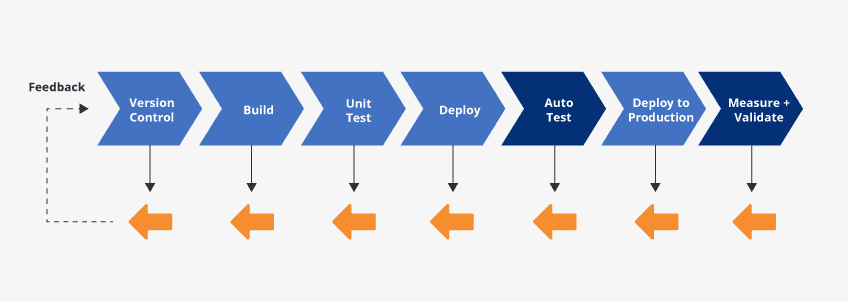
Source: Image
Does DevOps Need Coding?
The answer is both yes and no.
Yes, coding knowledge is useful because many DevOps tools and processes require scripting and programming.
No, it’s not always mandatory, especially for roles focusing on strategy, monitoring, or managing tools that don’t need extensive coding knowledge.
While Devops encompasses a variety of disciplines (including operations, automation, and quality assurance), coding is an essential part of many DevOps roles. DevOps professionals typically need at least a basic proficiency in scripting or programming to perform automation, integrate systems, and manage infrastructure effectively. Think of coding in DevOps as a tool in your toolkit. You may not need it for every task, but having it handy can make certain processes smoother and more efficient.
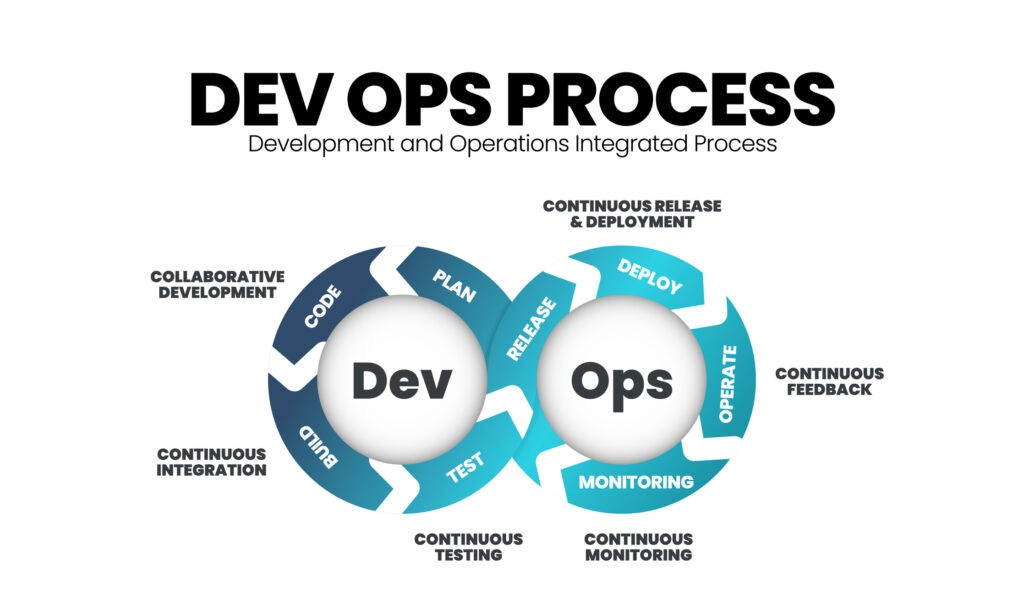
Source: Image
Is DevOps Full of Coding?
Let’s debunk a common myth: DevOps isn’t "full of coding." While it’s true that coding plays a role, many aspects of DevOps rely on skills like automation, orchestration, and problem-solving.
Understand DevOps breakdown Better
When Coding is Essential:
Writing automation scripts for repetitive tasks.
Managing infrastructure as code using tools like Terraform or Ansible.
Creating custom solutions for CI/CD pipelines with tools like Jenkins.
When Coding Isn’t Necessary:
Monitoring and managing deployments using tools like Kubernetes or Docker.
Configuring DevOps tools without delving into custom scripts.
Collaborating on workflows and strategy without touching a line of code.
Key Takeaway: Coding is like the icing on the DevOps cake. It enhances the flavor but isn’t the whole recipe.
DevOps Coding: Tools and Their Requirements
Understanding the tools you will work with can help clarify how much coding you will need. Here’s a quick snapshot:
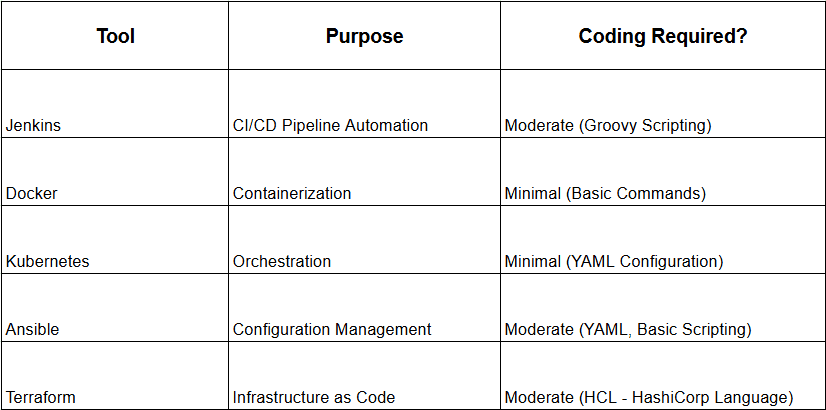
For instance, Jenkins might require some scripting, while Docker primarily relies on understanding commands.
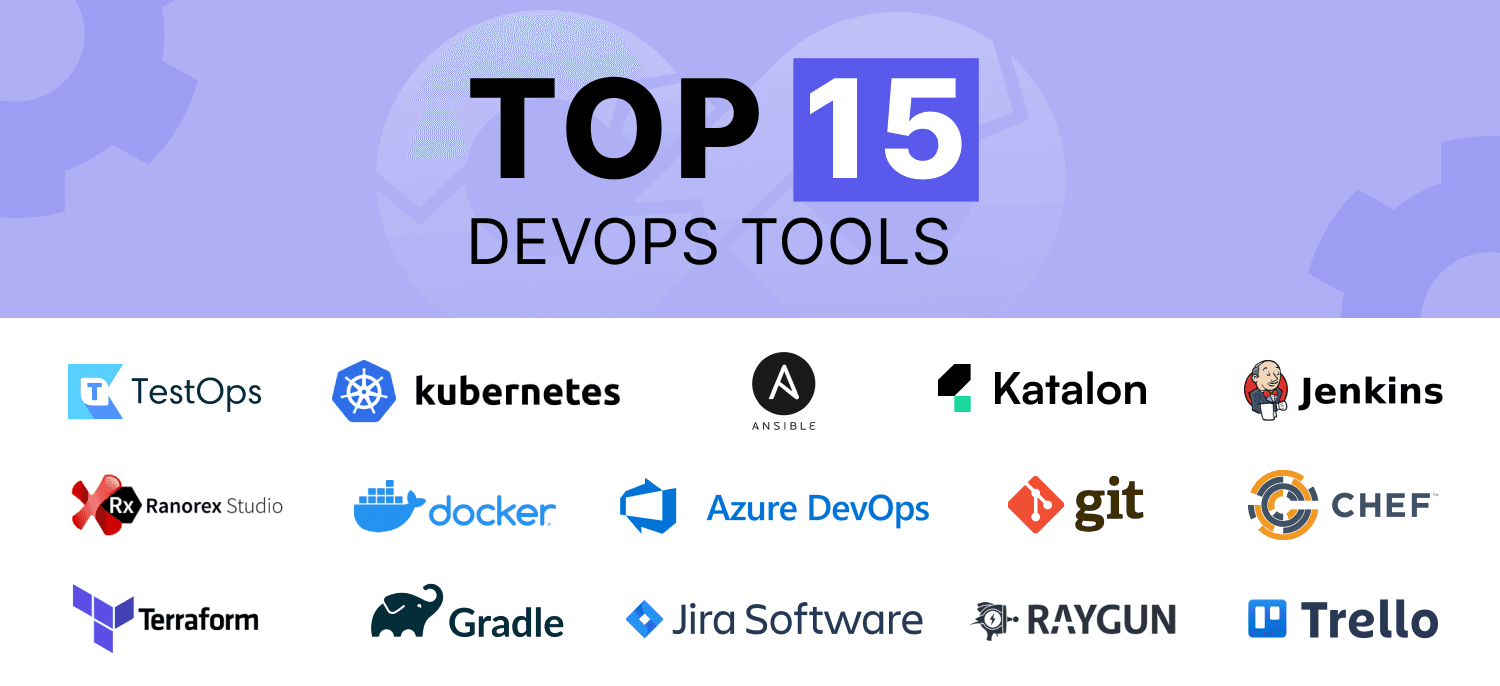
Source: Image
Does DevOps Have Coding? The Scripting Side
Scripting is a lighter, more accessible form of coding commonly used in DevOps. Whether it’s Bash, Python, or PowerShell, scripting enables automation, making tasks faster and more efficient.
Here are some examples:
Automating Backups: Writing a script to back up databases at scheduled intervals.
Deploying Applications: Creating scripts to deploy applications across multiple servers.
If the idea of coding feels overwhelming, start small with scripting languages. They are easier to learn and often provide immediate results.
Common Scripting Languages in DevOps
In DevOps, a variety of Scripting languages are used, depending on the task at hand. Below are some of the most commonly used scripting languages in the DevOps ecosystem:
Bash/ShellScripting: Bash is widely used for writing simple scripts that automates tasks like file manipulation, deployment, and system configuration. It’s especially used for Linux-based systems.
Python:
Python is a powerful and versatile scripting language that is used for everything from automation scripts to complex integrations with cloud services. It’s simplicity and readability make it a popular choice in DevOps.
PowerShell:
For Windows-based environments, PowerShell is a powerful scripting language that is used to automate administrative tasks and configure servers.
Groovy:
Groovy is commonly used in Jenkins pipelines. It’s a dynamic language that is often used to define CI/CD workflows.
YAML:
YAML is used for configuration files and templates in tools like Ansible, Kubernetes, and CI/CD pipelines. It is a human-readable format that is commonly used to define infrastructure resources and pipeline configurations.
Ruby:
Ruby is used in tools like Chef and Puppet for infrastructure automation. It is known for its elegant syntax and readability.
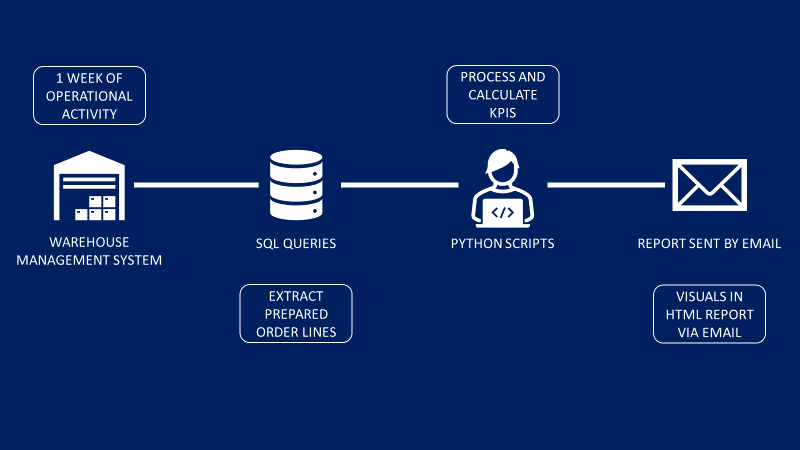
Source: Image
Do All DevOps Roles Require Coding?
The level of Coding knowledge required for a DevOps role varies depending on the job responsibilities. Not all DevOps roles are created equal. Here’s a closer look at the spectrum of responsibilities:
Roles That Typically Require Coding:
DevOps Engineers: They build and maintain CI/CD pipelines and often write scripts.
Infrastructure Engineers: These roles involve creating infrastructure as code.
Roles That Don’t Necessarily Require Coding:
DevOps Managers: Focus on strategy, team coordination, and tool management.
Monitoring Specialists: Work with dashboards and alerts, often without coding.
The beauty of DevOps is its flexibility. You can tailor your learning journey based on your interests and career goals.
Read More: Devops Tutorial for Beginners
How to Succeed in DevOps Without a Coding Background?
The rise of DevOps has fundamentally transformed the way software is developed, deployed, and maintained. With its focus on automation, collaboration, continuous integration (CI), and continuous delivery (CD), DevOps offers opportunities for IT professionals from diverse backgrounds to contribute to the software development cycle. While coding is often seen as a cornerstone of DevOps practices, you don’t need to be a programming wizard to start a career in DevOps. For those with limited or no coding experience, the good news is that there are many ways to thrive in a DevOps role. Here’s how you can thrive:
Master the Tools: Learn tools like Docker, Kubernetes, and Jenkins through hands-on practice.
Understand the Concepts: Focus on CI/CD, version control, and system monitoring.
Develop Soft Skills: Communication and teamwork are just as important as technical expertise.
Start with Scripting: Begin with simple automation scripts to ease into coding.
Remember, coding is just one piece of the puzzle. A well-rounded understanding of DevOps principles can take you a long way.
A Personal Insights on DevOps and Coding:
At Skillect, we believe that education should be accessible to everyone, regardless of their starting point. Some of our learners come from non-coding backgrounds and excel in DevOps by leveraging their unique strengths.
For example, one of our learners who transitioned from a marketing role to a DevOps career. They focused on mastering tools and understanding workflows before diving into scripting. Today, they manage deployments for a global tech company.
Their story is proof that coding isn’t a barrier—it’s an opportunity to grow at your own pace.
Conclusion: Coding in DevOps—Necessary or Nice-to-Have?
So, does DevOps need coding? The answer depends on your role and aspirations. While coding can open doors to advanced opportunities, it’s not a mandatory skill for every DevOps professional. As organizations continue to embrace Devops, the demand for professionals, with coding and scripting, expertise will only grow. To succeed in a DevOps role, professionals must not only be proficient in automation and scripting, but also be comfortable working across different tools, platforms, and environments.
At Skillect, we are committed to helping you navigate the ever-changing tech landscape. Whether you are a coding enthusiast or a beginner, our personalized learning paths can guide you to success.
Are you ready to embark on your DevOps journey? Explore our interactive courses at Skillect and take the first step towards building your dream career with our executive devops course. Schedule a free demo with out experts.
Does DevOps Require Coding Skills? A Guide for Aspiring Professionals
DevOps has become the cornerstone of modern software development, promising faster delivery, greater collaboration, and more reliable software. But, despite its increasing popularity and in the ever-evolving world of tech, one question seems to pop up repeatedly: "Does DevOps need coding?" This question is a practical one that affects how organizations train their teams, define roles, and allocate resources in the pursuit of DevOps success.
For many aspiring tech professionals, the idea of diving into DevOps can be both exciting and intimidating. But does mastering DevOps really require coding skills, or is it possible to thrive without them? In this blog, let’s explore the intersection of Devops and Coding, breaking down the role of programming within the DevOps framework. Also, let’s uncover the truth behind the role of coding in DevOps.
What is DevOps, and Why Does It Matter?
Before diving into the specifics of coding, it’s important to understand what DevOps is and what it entails. DevOps, a blend of "Development" and "Operations," focuses on improving collaboration between software development and IT operations teams. The goal is simple: deliver applications and services faster and with higher reliability. The objectives of Devops include:
Faster Delivery: Delivering high-quality software faster by automating repetitive tasks, reducing manual intervention, and accelerating the release cycles.
Continuous Integration (CI) and Continuous Delivery (CD): Automating the testing and deployment pipeline to ensure that code changes are automatically integrated and delivered to production with minimal friction.
Infrastructure as Code (IaC): Managing infrastructure using code and automation tools , rather than relying on manual configuration or traditional systems management.
Monitoring and Feedback: Using automated monitoring and feedback loops to detect issues early and ensure automation efficiency.
Companies worldwide, including giants like Amazon and Netflix, leverage DevOps to streamline their workflows. By automating repetitive tasks and ensuring continuous integration and delivery (CI/CD), DevOps plays a pivotal role in modern tech ecosystems.
But where does coding fit into this equation? And how much programming do you really need to know to succeed in a DevOps role?

Source: Image
Does DevOps Need Coding?
The answer is both yes and no.
Yes, coding knowledge is useful because many DevOps tools and processes require scripting and programming.
No, it’s not always mandatory, especially for roles focusing on strategy, monitoring, or managing tools that don’t need extensive coding knowledge.
While Devops encompasses a variety of disciplines (including operations, automation, and quality assurance), coding is an essential part of many DevOps roles. DevOps professionals typically need at least a basic proficiency in scripting or programming to perform automation, integrate systems, and manage infrastructure effectively. Think of coding in DevOps as a tool in your toolkit. You may not need it for every task, but having it handy can make certain processes smoother and more efficient.

Source: Image
Is DevOps Full of Coding?
Let’s debunk a common myth: DevOps isn’t "full of coding." While it’s true that coding plays a role, many aspects of DevOps rely on skills like automation, orchestration, and problem-solving.
Understand DevOps breakdown Better
When Coding is Essential:
Writing automation scripts for repetitive tasks.
Managing infrastructure as code using tools like Terraform or Ansible.
Creating custom solutions for CI/CD pipelines with tools like Jenkins.
When Coding Isn’t Necessary:
Monitoring and managing deployments using tools like Kubernetes or Docker.
Configuring DevOps tools without delving into custom scripts.
Collaborating on workflows and strategy without touching a line of code.
Key Takeaway: Coding is like the icing on the DevOps cake. It enhances the flavor but isn’t the whole recipe.
DevOps Coding: Tools and Their Requirements
Understanding the tools you will work with can help clarify how much coding you will need. Here’s a quick snapshot:

For instance, Jenkins might require some scripting, while Docker primarily relies on understanding commands.

Source: Image
Does DevOps Have Coding? The Scripting Side
Scripting is a lighter, more accessible form of coding commonly used in DevOps. Whether it’s Bash, Python, or PowerShell, scripting enables automation, making tasks faster and more efficient.
Here are some examples:
Automating Backups: Writing a script to back up databases at scheduled intervals.
Deploying Applications: Creating scripts to deploy applications across multiple servers.
If the idea of coding feels overwhelming, start small with scripting languages. They are easier to learn and often provide immediate results.
Common Scripting Languages in DevOps
In DevOps, a variety of Scripting languages are used, depending on the task at hand. Below are some of the most commonly used scripting languages in the DevOps ecosystem:
Bash/ShellScripting: Bash is widely used for writing simple scripts that automates tasks like file manipulation, deployment, and system configuration. It’s especially used for Linux-based systems.
Python:
Python is a powerful and versatile scripting language that is used for everything from automation scripts to complex integrations with cloud services. It’s simplicity and readability make it a popular choice in DevOps.
PowerShell:
For Windows-based environments, PowerShell is a powerful scripting language that is used to automate administrative tasks and configure servers.
Groovy:
Groovy is commonly used in Jenkins pipelines. It’s a dynamic language that is often used to define CI/CD workflows.
YAML:
YAML is used for configuration files and templates in tools like Ansible, Kubernetes, and CI/CD pipelines. It is a human-readable format that is commonly used to define infrastructure resources and pipeline configurations.
Ruby:
Ruby is used in tools like Chef and Puppet for infrastructure automation. It is known for its elegant syntax and readability.

Source: Image
Do All DevOps Roles Require Coding?
The level of Coding knowledge required for a DevOps role varies depending on the job responsibilities. Not all DevOps roles are created equal. Here’s a closer look at the spectrum of responsibilities:
Roles That Typically Require Coding:
DevOps Engineers: They build and maintain CI/CD pipelines and often write scripts.
Infrastructure Engineers: These roles involve creating infrastructure as code.
Roles That Don’t Necessarily Require Coding:
DevOps Managers: Focus on strategy, team coordination, and tool management.
Monitoring Specialists: Work with dashboards and alerts, often without coding.
The beauty of DevOps is its flexibility. You can tailor your learning journey based on your interests and career goals.
Read More: Devops Tutorial for Beginners
How to Succeed in DevOps Without a Coding Background?
The rise of DevOps has fundamentally transformed the way software is developed, deployed, and maintained. With its focus on automation, collaboration, continuous integration (CI), and continuous delivery (CD), DevOps offers opportunities for IT professionals from diverse backgrounds to contribute to the software development cycle. While coding is often seen as a cornerstone of DevOps practices, you don’t need to be a programming wizard to start a career in DevOps. For those with limited or no coding experience, the good news is that there are many ways to thrive in a DevOps role. Here’s how you can thrive:
Master the Tools: Learn tools like Docker, Kubernetes, and Jenkins through hands-on practice.
Understand the Concepts: Focus on CI/CD, version control, and system monitoring.
Develop Soft Skills: Communication and teamwork are just as important as technical expertise.
Start with Scripting: Begin with simple automation scripts to ease into coding.
Remember, coding is just one piece of the puzzle. A well-rounded understanding of DevOps principles can take you a long way.
A Personal Insights on DevOps and Coding:
At Skillect, we believe that education should be accessible to everyone, regardless of their starting point. Some of our learners come from non-coding backgrounds and excel in DevOps by leveraging their unique strengths.
For example, one of our learners who transitioned from a marketing role to a DevOps career. They focused on mastering tools and understanding workflows before diving into scripting. Today, they manage deployments for a global tech company.
Their story is proof that coding isn’t a barrier—it’s an opportunity to grow at your own pace.
Conclusion: Coding in DevOps—Necessary or Nice-to-Have?
So, does DevOps need coding? The answer depends on your role and aspirations. While coding can open doors to advanced opportunities, it’s not a mandatory skill for every DevOps professional. As organizations continue to embrace Devops, the demand for professionals, with coding and scripting, expertise will only grow. To succeed in a DevOps role, professionals must not only be proficient in automation and scripting, but also be comfortable working across different tools, platforms, and environments.
At Skillect, we are committed to helping you navigate the ever-changing tech landscape. Whether you are a coding enthusiast or a beginner, our personalized learning paths can guide you to success.
Are you ready to embark on your DevOps journey? Explore our interactive courses at Skillect and take the first step towards building your dream career with our executive devops course. Schedule a free demo with out experts.
